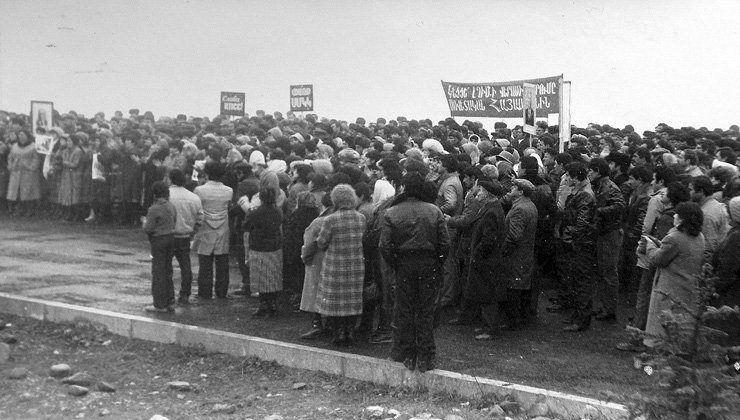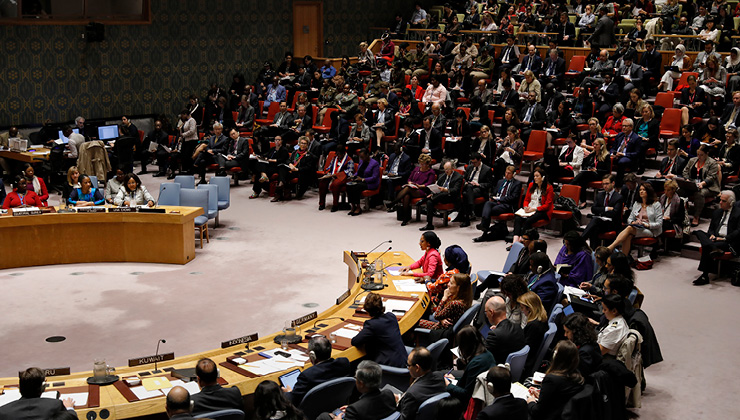Chitrangi Kakoti discusses the pervasiveness of militarised violence in Manipur and women’s resistance against the impunity that the Armed Forces (Special Powers) Act 1958 (AFSPA) offers to military personnel.
On 17th December 2020, the Home Ministry of the Indian state of Manipur issued a notification that extended the imposition of the Armed Forces (Special Powers) Act 1958 (AFSPA) for a year. This notification is one amongst several to be issued to extend the status of Manipur as a “Disturbed Area,” and thus, sustain the presence of the armed forces in the region. The purpose for the implementation and extension of AFSPA in the state is claimed to be the ongoing armed conflict in Manipur. The Manipur Governor expressed that “the state is still in the grip of violence perpetrated by extremist or insurgent groups and it is necessary that armed forces remain deployed to help the civil administration ensure order and peace.”
Despite many challenges to the implementation of AFSPA and demands for its repeal throughout the decades, the Indian government continues to impose it in various conflict areas along its borders – most notably in Northeast India, and Jammu and Kashmir – for ‘security’ purposes. In these conflict areas, the implementation of the AFSPA and the associated military presence are an integral part of everyday life, as well as demonstrative of the Indian state’s militarism.
The implementation of AFSPA, and its continued extension, indicate the Indian state’s commitment to deploying militarism as its primary policy to secure its integrity, and protect its sovereign territory from any external or internal threats. Swati Parashar has argued that the “excessive militarism” of India is indicative of a ‘postcolonial anxiety’ in the face of secessionist movements and insurgency; the security paradigm is further combined with the goal of development. Ordinary citizens get caught in the crossfire of the institutionalised violence in Manipur that is perpetuated both by the Indian military and insurgent groups.
There are distinctly gendered dimensions to the militarised violence that occurs under AFSPA. The Act blurs the boundaries between the public domain of war and the private domain of the home and family. Under the Act, officials of the military are provided ‘special powers’ that enable them to arrest without warrant, enter and search any property or persons without warrant, and to fire upon or use force on suspicion of involvement in underground insurgent groups, even if it causes death. Therefore, under the Act, the private space offers no sanctity from violence. Stories abound of the army entering, threatening, and arresting people from their houses in the dead of the night.
Such was the case of Thangjam Manorama Devi, a 32-year old Manipuri woman who was arrested from her house in the early hours of 11 July 2004 by personnel of the Indian paramilitary Assam Rifles. Although no evidence was provided, mere suspicion of her involvement with the People’s Liberation Army (PLA, an underground insurgent group) was sufficient grounds for her arrest. Her bullet-ridden body was found a few hours later, approximately four kilometers away from her house. Her body bore evidence of torture and rape in the form of gashes in her inner thigh and gunshot wounds to her genitals. The Assam Rifles personnel denied that Devi was tortured and raped. Instead, they claimed that she was shot while trying to escape from custody.
Therefore, another dimension of gendered violence under AFSPA is the deployment of sexual violence as a disciplining tool against civilians that are deemed as “enemies of the state.” Devi was punished for her alleged involvement with the PLA and non-compliance with the Assam Rifles through rape. The callousness with which her body was left exposed in the fields also indicate that her death was meant to be a warning to the Manipuri people of the fate that awaited those who threatened the security of the nation.
another dimension of gendered violence under AFSPA is the deployment of sexual violence as a disciplining tool against civilians that are deemed as “enemies of the state.”
Another example of the deployment of sexual violence as a disciplining tool is the infamous Operation Bluebird in 1987. On 9 July 1987, members of the insurgent group Nationalist Socialist Council of Nagaland (NSCN) attacked an Assam Rifles post located at the Oinam Hills in Manipur to steal arms and ammunitions. In retaliation, twenty village communities in the area were cordoned off by the Assam Rifles.
During the three months of Operation Bluebird, villagers were killed, maimed, and tortured through electric shocks, illegal detainment, insertion of chilli powder into sensitive body parts, and being buried up to the neck. Women were particularly targeted due to their suspected familial relationships with members of the NSCN. Three women reported being raped, and others reported being sexually harassed by Assam Rifles personnel. An Amnesty International report published in 1990 also reported pregnant women being beaten to the extent that the intensity of the violence resulted in forced abortions later.
It is, therefore, unsurprising that women are the forefront of the resistance to AFSPA, the presence of the Indian armed forces, and the armed conflict. It is not merely the loss of sons, husbands, and daughters to torture, unwarranted and indiscriminate killing that motivates their resistance. Militarized violence specifically targets women to punish and discipline a population deemed as ‘insurgent’ by the Indian state. Thus, Manipuri women mobilise under the Meira Paibi organization to safeguard the Manipuri people from social issues such as alcoholism and substance abuse, as well as militarised violence. Members of the Meira Paibi are primarily married women, and thus, they foreground their identities as Ima (mother) and deploy a rhetoric of protective motherhood to gain legitimacy for their resistance.
It was the naked protest by twelve members of the Meira Paibi in front of the headquarters of the Assam Rifles on 15 July 2004 against Manorama Devi’s death that gained prominence within national media. Their protest ultimately led to the withdrawal of the AFSPA from the capital city of Imphal, although the Act has continued to be implemented in the rest of the state. Another example of women-led protest against the AFSPA and military violence in Manipur is the 16-year-long hunger strike of political activist Irom Sharmila from 2000 to 2016.
Yet, despite popular support and demand for these protests and the repeal of AFSPA and the status of “Disturbed Area” from Manipur, the Indian state continues to employ this legal framework of security laws. The refusal to repeal the AFSPA indicate the commitment of the Indian state to the sustenance of a legal and political framework that, in effect, undermines and violates the physical security of the individuals and collectives that it claims to protect.
The special powers provided to the Indian state’s armed forces under AFSPA allows military personnel to inflict violence against its civilians. As discussed, this violence is pervasive and gendered. It makes the boundaries between the public and private indistinct, and specifically targets women to punish and surveille the nation’s “deviant,” or ‘insurgent’ populations. Considering that innocent civilians are often the victims of the quotidian violence under AFSPA and women have been compelled to take up the role of the protector, the continued implementation of AFSPA begs the question: security for whom, and by whom?
This blog was published with the support of a European Research Council (ERC) grant under the European Union’s Horizon 2020 research and innovation programme (Grant agreement No. 786494), whose funds in part support this space.
The views, thoughts and opinions expressed in this blog post are those of the author(s) only, and do not necessarily reflect LSE’s or those of the LSE Centre for Women, Peace and Security.
Image credit: Flikr (CC BY-NC-ND 2.0)






A well-written, precise and factual representation of a topic that doesn’t get the limelight it deserves. Everyone needs to see this!
As always, great work Chitrangi!
A well Structured, detailed and thought Provoking Blog…
Keep it Up Chitrangi👍😊
We can just hope that the Union and the States Implement a mechanism to rectify the loopholes of the Act.